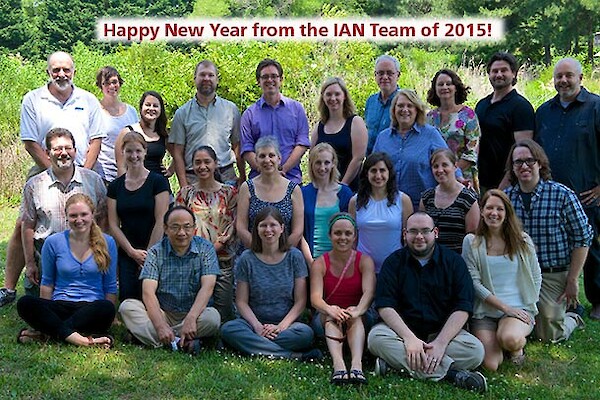
Blog & Video Highlights
Video
- Todd Petty's recent Science for Citizens seminar, titled "A view of stream habitat conditions in the Chesapeake Bay watershed through the eyes of brook trout", is now available.
Blogs
- How is your ecosystem doing? Advances in the use and understanding of ecosystem indicators workshop
- Within our Reach provides insights into engaging communities and restoration of the Willamette River
- Salt marshes and Superfund sites - a trip to coastal Georgia
IAN in 2015
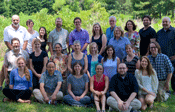 The Integration and Application Network has an exciting 2015 ahead. IAN has undergone a staffing expansion, with five new staff based at the Chesapeake Bay Program, a new administrative staff position, and two PhD students beginning in January 2015. A concerted teaching effort by IAN is being launched in 2015, with full semester courses in Science for Environmental Management (Spring 2015) and Communicating Science Effectively (Autumn) being offered. In addition to our ongoing Chesapeake Bay and Maryland Coastal Bays projects, we are looking forward to exciting projects in New York (Long Island Sound report card and New York Harbor School - Billion Oyster Project), India (with the National Centre for Sustainable Coastal Management) and Australia (Charles Darwin University and Great Barrier Reef Foundation). We have a great set of partners that we will be working with this year on a diverse suite of projects.
The Integration and Application Network has an exciting 2015 ahead. IAN has undergone a staffing expansion, with five new staff based at the Chesapeake Bay Program, a new administrative staff position, and two PhD students beginning in January 2015. A concerted teaching effort by IAN is being launched in 2015, with full semester courses in Science for Environmental Management (Spring 2015) and Communicating Science Effectively (Autumn) being offered. In addition to our ongoing Chesapeake Bay and Maryland Coastal Bays projects, we are looking forward to exciting projects in New York (Long Island Sound report card and New York Harbor School - Billion Oyster Project), India (with the National Centre for Sustainable Coastal Management) and Australia (Charles Darwin University and Great Barrier Reef Foundation). We have a great set of partners that we will be working with this year on a diverse suite of projects.
Gulf of Kachchh Cumulative Environmental Impact Assessment
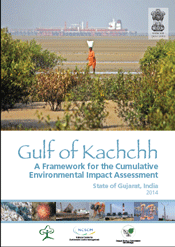 The National Centre for Sustainable Coastal Management (NCSCM), Ministry of Environment and Forests, India, and the Gujarat Ecology Commission (GEC), Gujarat India, released the Gulf of Kachchh Cumulative Environmental Impact Assessment (CEIA) framework, which was developed at a September 2013 workshop Gandhinagar, in Gujarat State. IAN facilitated the workshop, synthesized the results, and produced the framework for the CEIA in close consultation with workshop participants, NCSCM, and GEC. The CEIA project describes a broad framework for developing a comprehensive impact assessment that accounts for current and anticipated pressures on the ecosystem. The framework consists of five steps: 1.) Describing the key features and values, 2.) Identify and quantify major pressures on the environment and values, 3.) Examine and describe the current state of the environment, 4.) Quantify past and existing pressures and determine linkages to impacts, and 5.) Integrate the results into adaptive management.
The National Centre for Sustainable Coastal Management (NCSCM), Ministry of Environment and Forests, India, and the Gujarat Ecology Commission (GEC), Gujarat India, released the Gulf of Kachchh Cumulative Environmental Impact Assessment (CEIA) framework, which was developed at a September 2013 workshop Gandhinagar, in Gujarat State. IAN facilitated the workshop, synthesized the results, and produced the framework for the CEIA in close consultation with workshop participants, NCSCM, and GEC. The CEIA project describes a broad framework for developing a comprehensive impact assessment that accounts for current and anticipated pressures on the ecosystem. The framework consists of five steps: 1.) Describing the key features and values, 2.) Identify and quantify major pressures on the environment and values, 3.) Examine and describe the current state of the environment, 4.) Quantify past and existing pressures and determine linkages to impacts, and 5.) Integrate the results into adaptive management.
Coastal Georgia's ecosystem health report card
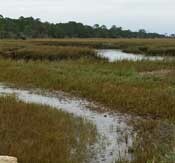 Alex Fries and Caroline Donovan traveled to Brunswick, Georgia to facilitate a workshop on a coastal Georgia report card for the Georgia Department of Natural Resources' Coastal Resources Division. The coastal Georgia ecosystem has an extensive salt marsh system that stretches from Savannah in the north to the Georgia-Florida border in the south. The shape of Georgia contributes to the large tidal range (average 6 feet, spring tides as high as 10 feet), which feeds the salt marshes. Barrier islands speckle the coastline, as well, protecting the marshes from storms and sea level rise. These natural ecosystems have led to abundant fish, shrimp, and crustacean populations. The few threats and pressures include contaminants from factories and Superfund sites. The report card will be released in summertime 2015.
Alex Fries and Caroline Donovan traveled to Brunswick, Georgia to facilitate a workshop on a coastal Georgia report card for the Georgia Department of Natural Resources' Coastal Resources Division. The coastal Georgia ecosystem has an extensive salt marsh system that stretches from Savannah in the north to the Georgia-Florida border in the south. The shape of Georgia contributes to the large tidal range (average 6 feet, spring tides as high as 10 feet), which feeds the salt marshes. Barrier islands speckle the coastline, as well, protecting the marshes from storms and sea level rise. These natural ecosystems have led to abundant fish, shrimp, and crustacean populations. The few threats and pressures include contaminants from factories and Superfund sites. The report card will be released in summertime 2015.
IAN welcomes Susan Collins
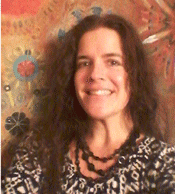 Susan Collins joined IAN on January 5 as an Accountant in our Cambridge office after serving for the past 6 ½ years as an Accountant in the UMCES Center Administration Comptroller's Office. She has a Bachelor's degree in Accounting and is pursuing a Master's degree in Management with an Accounting specialization. Her primary responsibilities will be monitoring the state operating account and IAN contract and grant expenses, preparing various financial reports, and administering the business office functions of payroll, accounts payable, and accounts receivable. She lives in Cambridge with her husband, 16 year old son, and 14 year old daughter. Most of her free time is spent cheering on her kids at their sporting events (football, lacrosse, and softball) and writing papers for her degree requirements. She also enjoys going to the beach, and attending fitness classes at the Powerhouse gym.
Susan Collins joined IAN on January 5 as an Accountant in our Cambridge office after serving for the past 6 ½ years as an Accountant in the UMCES Center Administration Comptroller's Office. She has a Bachelor's degree in Accounting and is pursuing a Master's degree in Management with an Accounting specialization. Her primary responsibilities will be monitoring the state operating account and IAN contract and grant expenses, preparing various financial reports, and administering the business office functions of payroll, accounts payable, and accounts receivable. She lives in Cambridge with her husband, 16 year old son, and 14 year old daughter. Most of her free time is spent cheering on her kids at their sporting events (football, lacrosse, and softball) and writing papers for her degree requirements. She also enjoys going to the beach, and attending fitness classes at the Powerhouse gym.

